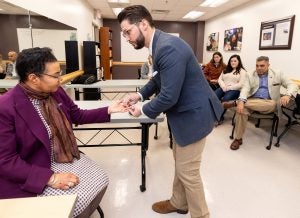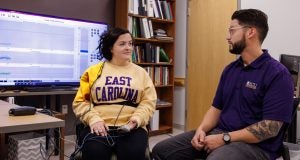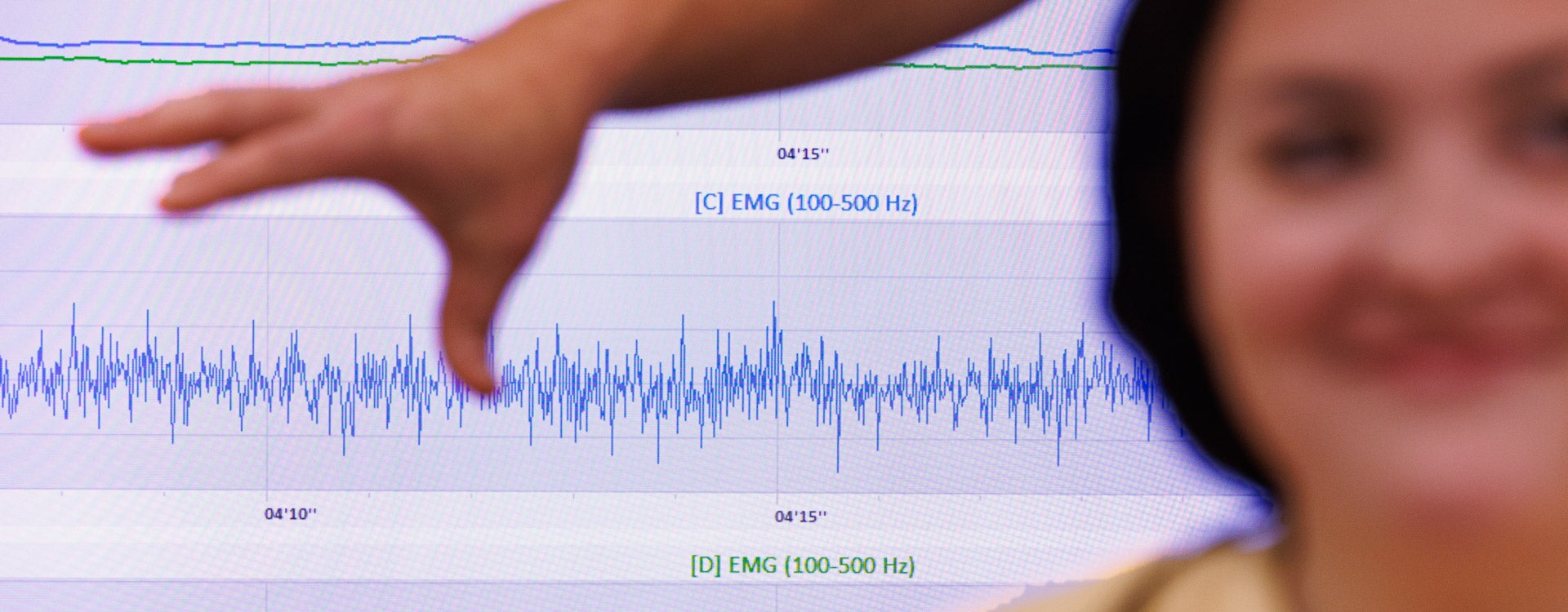Celebrating the Center for Biofeedback
The College of Health and Human Performance highlights the Center for Biofeedback as part of Recreational Therapy Month in February.
The Center for Biofeedback recently underwent a name change under the Department of Recreation Sciences. It was previously referred to as the Center for Psychophysiology.

Provost Robin Coger working with Matthew Fish in the Center for Biofeedback. (ECU Photo by Rhett Butler)
ECU’s Center for Biofeedback continues to be a national model for researchers with opportunities in as biofeedback, virtual reality, optimal performance, stress management and heart rate variability feedback. Equally important, ECU has the only RT biofeedback program in the nation and became the first accredited program for a heart rate variability certificate.
“What we’re trying to do in the future is to continue to be a leader in this area,” said ECU Center for Biofeedback Director Dr. Matthew Fish, an associate professor in the Department of Recreation Sciences. “I would say we are already nationally known, but making that even larger.”
Biofeedback is a treatment technique whereby people learn to balance their nervous system by using their bodies’ signals. Therapists using biofeedback as a treatment tool can train clients to improve their brain activity, blood pressure, heart rate and other body functions that individuals often consider involuntary.
Fish added the Center for Biofeedback and affiliate faculty focus on teaching, research and service.
The involvement of undergraduate, master’s and doctoral students is instrumental to the center’s success. Collaborating with community partners and various campus representatives, such as the ECU College of Nursing and Health Sciences Campus, also is essential.
More information on community outreach and services and academic programs, including the BCIA-approved heart rate variability 16-hour certificate program, is available here and to explore more about the Center for Biofeedback.
Fish has been involved in biofeedback research since it helped him in 2006.
“I heard about biofeedback then, and it started a whole new world,” he said. “(ECU professor emeritus Dr. Carmen Russoniello, founding director of the Center for Applied Psychophysiology and Biofeedback) hooked me up and I started doing the training, it worked, and I took the class. It wasn’t the path I thought I would take when I was 18 and came to college, but I learned about biofeedback, it helped me, and I really just became enamored and in love with it. Biofeedback has been stuck to my side since that day, and I don’t want to get rid of it.”

ECU Center for Biofeedback. (Cliff Hollis)
